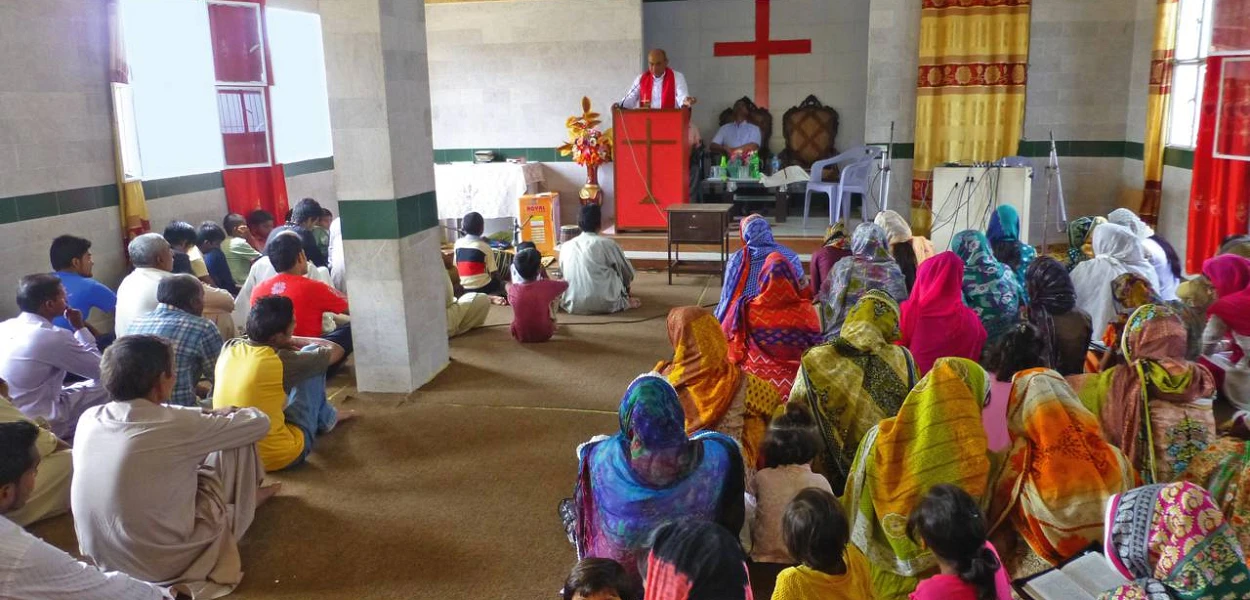
Pakistan court ruling sends out positive signal to Christians
A Supreme Court of Pakistan ruling that outlaws the use of an offensive term for Christians is being hailed as historic.

Pakistan’s Christians welcome the court ruling as a move away from discriminatory language. csi
The Supreme Court decision requires the government and public institutions in the northwestern province of Khyber Pakhtunkhwa (KP) to replace the Urdu term ‘Esai,’ with ‘Masihi,’ when referring to Christian citizens.
The term’Esai’, which has its roots in ancient caste discrimination, has long been used to refer to Christians, and is highly derogatory.
The long-awaited change comes after a minority rights group submitted a petition over the issue.
The Christian community and its supporters welcomed the ruling. For CSI project partner Anjum* it is “a significant milestone” in acknowledging and respecting Christians’ cultural and religious identity.
Campaign against biased language
The Pakistan Minorities Teachers’ Association (PMTA) has long campaigned for the use of neutral, non-biased language in official communications.
For 15 years, the PMTA has been raising concerns regarding bias and discrimination in educational policies and school textbooks. The association drew attention to the need for a curriculum that reflects the vision of Pakistan’s founder, Mohammad Ali Jinnah, of a tolerant, inclusive Pakistan.
The PMTA argued for the use of the word ‘minorities’, as contained in the 1973 Constitution of Pakistan, in place of ‘non-Muslims.’ It also advocated for the use of the words ‘Masih,’ ‘Masihi,’ and ‘Masihyiat,’ (Christ, Christian/s and Christianity) in place of ‘Esa,’ ‘Easi,’ and ‘Esayiat,’ in textbooks.
Integration and equality
“This linguistic shift signifies a departure from a history of contempt and aims to promote integration and equality,” said Anjum. “It’s a testament to the commitment of institutions to uphold the principles of equality enshrined in Pakistan’s constitution.”
And he added, “The evolution from ‘Esai,’ to ‘Masihi,’ is not just linguistic; it symbolizes a broader societal commitment to hopefully more respect, understanding, and unity among Pakistan’s rich tapestry of cultures and beliefs.”
Anjum noted that government departments were already taking notice of the ruling, with the Election Commission of Pakistan having adopted the new terminology in official documents.
Pakistan’s Supreme Court previously ruled in 2018 that all authorities should refer to Christians as ‘Masihi,’ not ‘Easi,’ but the order went unheeded in many quarters.
“By discarding terms that carry historical biases and adopting ones like ‘Masihi,’ Pakistan’s institutions are taking a crucial step towards eradicating discrimination,” commented Anjum.
A word with a stigma
The term ‘Esai,’ which is derived from the Qur’an’s name for Jesus, ‘Isa,’ became widespread in the late nineteenth and early twentieth centuries. At that time, large numbers of landless undercaste people in the Punjab region converted to Christianity. As a result, it came to be associated with street cleaning and other lower caste occupations.
In addition to these negative connotations, Christians also feel that ‘Masihi’ – which, like ‘Christian’ in English, means ‘of the Messiah’ – better describes their identity than ‘Esai,’ which is derived from Islamic scripture.Another derogatory term for Christians is ‘churha,’ or ‘street sweeper,’ a word that referred to a caste of Dalits, the ‘untouchables.’
The term has retained a strong pejorative meaning over the years and is used as an insult to Christians, regardless of their profession, according to the Catholic news agency Fides, which carried news of the court ruling.
In Pakistan, an estimated 80 percent of street sweepers and sewage workers are Christians. Uneducated and with low social status, they are still treated as outcasts.
There are around 3.84 million Christians in Pakistan, comprising 1.59 percent of the population, according to the 2023 census.
*For security reasons, we do not refer to our partner in Pakistan by his full name.


